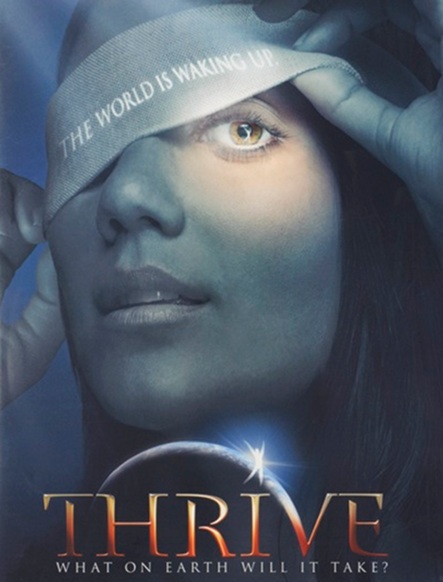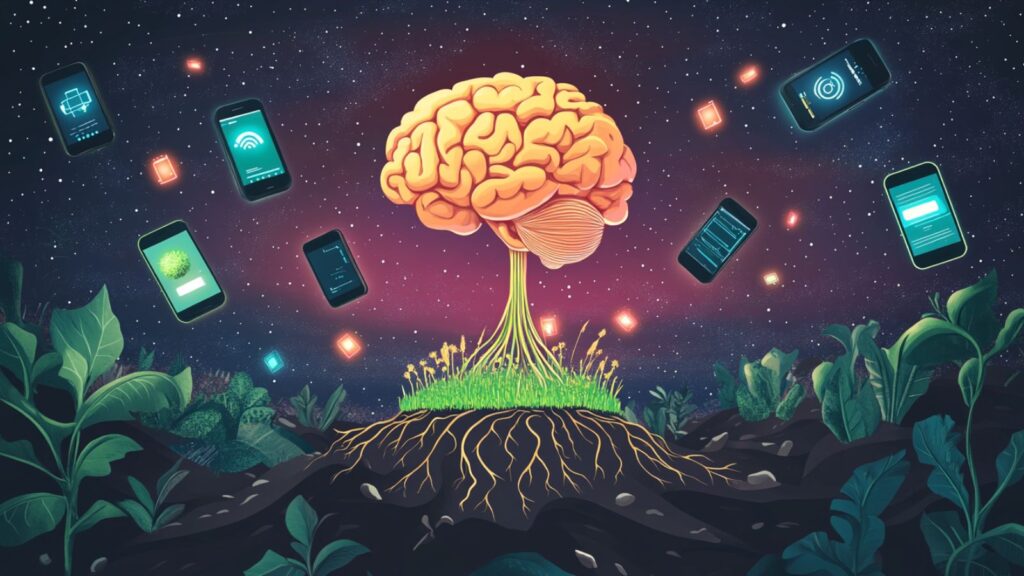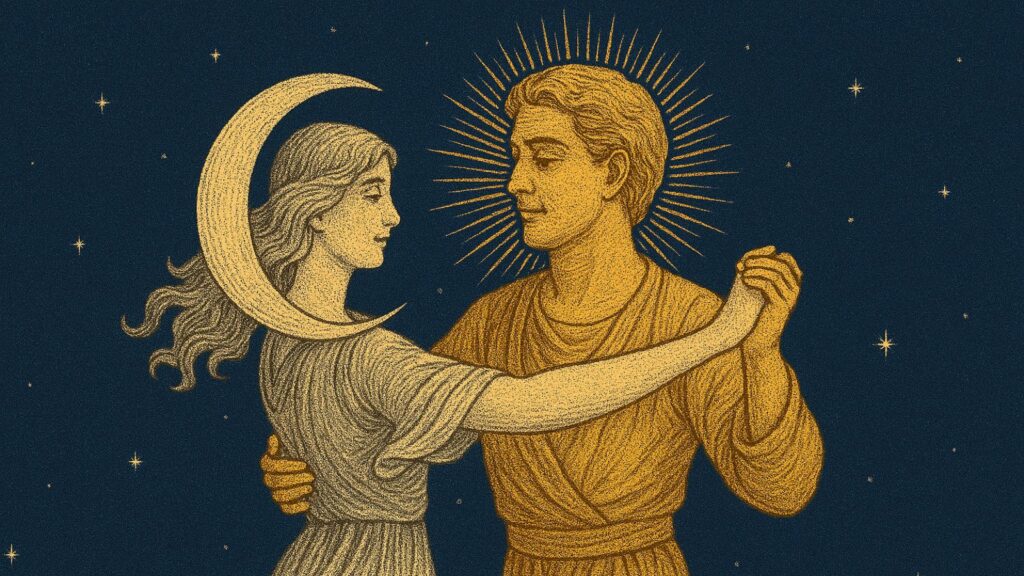Charles Eisenstein, the author of Sacred Economics, has
written an article,"Synchronicity, Myth and the New World Order", and a critique
of THRIVE: What on Earth Will It Take?, that have engendered much discussion. I
welcome this opportunity to have a broad and public conversation to look more
deeply into some very important issues that he and my film THRIVE raise.
I took the time to read Charles' book in depth, and though I
disagree with much of what Charles proposes, I think his work has important
offerings. My intention is that this on-going conversation further our mutual
quest for core ethics, truth and effectiveness in transitioning to a world
where all can thrive.
Correcting Some Innaccuracies
Before diving into the philosophical and strategic
discussion, I want to clear up some initial inaccuracies in the review of
THRIVE. The title of the review ("THRIVE: The Story is Wrong but the Spirit is
Right") immediately casts our discussion into the polarization of right and
wrong. I recommend some different distinctions going forward: 1) more or less
USEFUL, and 2) ETHICAL or NON-ETHICAL.
Charles' assumption that I was invoking (p.3) and trying to
wage a "war against EVIL" (p. 1) is contrary to the tone and claims in THRIVE.
I do not believe there is some separate force in the Universe called EVIL. Perhaps
he confused this with his own observation in his conspiracy article, "Evil and
its expression as The New World Order…has like all other things its place in
the world." (P. 15) I do observe that some people, in certain mental/emotional
conditions and self-justified by certain worldviews and institutions, do
intentionally mean and destructive ("sinister") things to others. I am very interested
in protecting life by neutralizing the aggression of those individuals and
transforming the systems and obsoleting the agendas of which they are a part.
Next, I want to be clear that THRIVE is not advocating or
counting on some sort of "Technological
Utopianism."
Charles claims:
"…the
film's contention that the main reason for the misery of the Third World masses
is lack of access to energy, and that unlimited clean energy would be a
near-panacea for humanity's problems and would usher in an era of abundance.
The story here – call it "technological utopianism" – is that technology is
going to rescue
us, create a new and better world, and solve our problems."
I believe that having cheap, clean and safe access to energy
all over the planet for would be a huge boost economically, ecologically and
would provide useful evidence for a new paradigm of universal abundance. It
supplements, but does not replace shifts in consciousness as well as financial
and other systems. Access to energy and means for healthy commerce (i.e. an
honest money system) are currently bottlenecks through which people can be
impoverished and forced to put all their attention on subsistence instead of thriving.
Thrivemovement.com goes into the myriad issues that accompany the liberated
global access to energy and economic solvency. We emphasize the core
transformation of energy and commerce systems because without that other
changes are insufficient.
Though Charles writes in his book that "free energy technologies have been in existence for at least a century,"
(SE, p.443), in his THRIVE review he contradicts himself by taking a swipe at
our credibility in saying, "I won't
consider here the scientific plausibility of such technology, which appears to
violate the Second Law of Thermodynamics."
Let me clarify that first, a toroidal technology, like an
atom, a human or a galaxy is an open system and the 2nd Law applies
to closed systems. It's not the motion of the machine which is perpetual, (all
matter wears down) it's the source of energy! Second, what is the explanation
for the fact that these inventors are getting raided, shut down, threatened and
sometimes killed if they are actually all charlatans? It's documented that the
US Government has denied and confiscated over 3000 patent applications for
alternative energy devices. Doesn't it make sense that they might actually know
something about how and which devices actually work?
In his book, Charles goes so far as to excuse J.P. Morgan's
suppression of Nikola Tesla's radiant energy tower by writing "Perhaps Morgan was even on some level
cognizant that humanity was not ready for Tesla's gift." (Sacred Economics,
p. 443).
Wow. I wonder how all the people suffering from lack of
energy and all the species rendered extinct in the course of dirty energy
proliferation feel about that.
Eisenstein refers to THRIVE having attracted a "cult following." This strange and
inaccurate term, of course, has been seized upon and often repeated by
government trolls and would-be debunkers to try to undermine the credibility of
the thrive movement. More accurately, the movie has been seen by over a million
people all over the world in its first month with over 95% rave approval and
appreciation for providing coherent, fact-based information and grounded
solution strategies. I request that intelligent critical thinkers who
appreciate THRIVE not be dismissed as cult followers. There is no cult here and
the people finding value in this critical information deserve more respect.
Charles has obviously done a lot of research for his book. I
especially appreciate his detailed look into the history of money, alternative
currencies, localization and his efforts to come up with some out-of-the-box
thinking about what approaches might restore healthy lives and ecologies. It's
well worth the $16 he charges for it on Amazon – especially for its value in
triggering critical thinking and exploratory interchanges just like this one.
My two biggest concerns about the Eisenstein perspective are
that:
a) It can serve to lull people back to sleep and provide the
temporary comfort of denial, while distracting from what is really going
on…and
b) Many of its proposals, though sounding good at first
blush, are ultimately based on government intervention backed by threats of
violence – rather than the true protection of the rights of each individual.
Conspiracy
Although
Eisenstein acknowledges on page 13 of his book that a totalitarian one
world government seems to be approaching, he then goes on (pages 3,5,8,9,14,91)
to undermine others from taking it any more seriously than to work on our egos
and remember our oneness. An example:
"What if our emotions and beliefs actually
attract experiential data that fits them…so that it looks like a conspiracy
even if there are no conspirators?" (NWO, p.8)
No
conspirators? People conspiring to accomplish certain goals is undeniable- the
question is at what scale and to what end. Check out this site. I am personally encouraged to know that what we experience as systems-wide
failure is not random or just the cruelty and incompetence of all of humanity, but
instead the consequence of our unwitting participation in an agenda that we
have the power to obsolete through non-violent non-participation.
Belief in conspiracy
theories is a …victim state. (NWO, p.5)
If we ignore the agenda for domination, we will end up
experiencing a whole new level of meaning to the term "victim state."
In one of his most unlikely conclusions, Charles states:
"A nefarious power,
inimical to human well-being, manipulates the course of human events from
behind the scenes, seeking the total control of every human being. Rather than
an evil Illuminati, could that power be money? Could it be that it is rather the money system that controls the global
elite?"
This
is like saying the gun was guilty of the murder. Are the banking elite unaware
of the unfair advantage the money scam gives them? They have the power to
remedy it if it is not their intention. Our corrupt money system did not create
itself, nor will it get rid of itself without dedicated effort.
"Give me control of a nation's money system and I
care not who creates the laws." –Mayer
Amschel Rothschild
"Who
controls the food supply controls the people; who controls the energy can
control whole continents; who controls money can control the world." –Henry
Kissinger, 1973
Charles writes that…"conspiracy
theories eventually bring most people to a kind of despair, even paralysis…"
(NWO, p.14)
Gratefully,
this is not the reaction we are getting to THRIVE. Viewers report that the
tone, the coherence, the honoring of nature and the human spirit, and
especially the in-depth solutions, provide a sense of motivation, traction and
viable things to do with the energy that arises. Many people feel validated in
their perception and more hopeful than ever now that we have thrivemovement.com
through which to share vital information within a context of hope and activism.
He says: "The
conspirators are not others, they are we, you and I and everyone…"
This
is an example of where I think it is vital to remember our unification, while
simultaneously recognizing our individual distinction. Why do we take care to
avoid a dangerous street if we are walking alone at night? Some people are
desperate and will harm others. That is true on small and large scales and
pretending otherwise is dangerous.
Solutions
When I search for viable solutions being suggested by
Eisenstein's "sacred" approach, unfortunately a great number of them seem to
play directly into the hands of the agenda for global control and undermine the
individual's rights and ability to take action.
Non-Action
Charles writes that:
"The dark energies
have nearly run their course… Though some might try to hold onto it a little
longer, sooner or later they will accept that their time is over, and they will
bow out of service…" (NWO, p.15)
What
is the evidence for this? I do not
see any indication that they are going to go away on their own. In my
experience, it always comes down to individuals waking up, speaking up and
taking action if we are going to expose and transcend tyranny.
Choose a Belief that
Feels Good
"I suggest we choose a
belief, and the corresponding psychological state accompanying it…consider
how each belief-state feels, what it implies about the world, about human beings, and about
oneself." (NWO, p. 12)
How
about logic and observation? How about going through the uncomfortable feelings
that may come up around facts we wish weren't true? Shall we pretend no one is
starving because it doesn't feel good to acknowledge it? I believe we can be
empowered by feeling the discomfort – as anyone who has successfully navigated
grief or rage can attest to. On the other side we feel the strength of knowing
we are not victims and that we have the right to control our own lives, as long
as we do no harm to others.
No Principles
"I, however, don't
live by principles, nor do I recommend it."(NWO, p. 398)
I believe that in order for people to live without rulers
dominating their actions, we need clear rules instead – based on the core
principle of non-violation – that no one has the right to violate another
person or their property except in true self-defense.
Just for the record, there are numerous principles Eisenstein
recommends. Some of them follow.
"To charge a fee for
service, or even for material good, violates the spirit of the Gift." (SE, p.
401)
Impracticality
"The key to right
livelihood is to live off gifts." (SE, p. 397)
"Musicians, artists, prostitutes,
healers, counselors, and teachers all offer gifts that are debased when we
assign them a price…the only honorable way to offer it is as a gift." (SE –
412)
Theft
"Most corporations and business owners
are not ready to step into a gift-based business mode. That's OK – you can give
then a little push! Simply implement it unilaterally by "stealing" their
products, for example by illegally downloading or copying digital content like
songs, movies, software, and so on." (SE, p. 411)
To imagine that people's lives are going to be restored by
others stealing from them is dangerously incomplete and self-serving in its
logic. If you want to gift your goods then gift them. But to impose your choice
not to on the creator of them is violation, and exactly what gives you the
right to impose that violation?
Though Charles has written, "When we convert ‘have to' into ‘want to' we are free," (SE, p.
358), many of his proposals seem to be ultimately based on force.
"The state could determine by fiat who gets credit…" (SE, p. 456)
And
we have confidence in this why? Every
State in history has grown to violate its people. I believe people have the
right to determine their own systems of exchange and that those that serve the
real needs will prevail without State imposition or subsidy.
Fractional Reserve
Charles states: In a
fractional reserve system, one way to view what happens is that banks are not
creating new money at all, but simply allowing existing money to be in two places
at once. (SE, p. 454)
This
notion has reached its ludicrous exposure in so-called "naked short sales"
where up to 300 people have been documented to be claiming to own the same
shares of stock. It has been used by investment banks to manipulate markets to
the disastrous destruction of many individual's financial well-being.
He then says: "Is the
money in your savings account "really there" or not? That is the question that
bothers "real money" advocates, but ultimately it is not a useful question."
(SE, p.455)
"In a credit system,
most of the credit should go to those who will put it to good use."
(Who decides what "good" is? To prevent abortion? To support
it?)
He goes on to say, "The
"social function" I describe doesn't dictate to whom it goes; it merely sets
the conditions so that it will be most likely to go to a certain area that
represents the social consensus of good use. This function can be adjusted."(SE, p.456)
By
whom? – The enlightened? Property is based fundamentally on our right to own
ourselves, our bodies…and then the fruits of our labor. As soon as you
eliminate property and give authority to a state, much less control over a fiat
credit system, you have all the key historical ingredients for tyranny. I
assert that the fundamental unit of wholeness at the human level is each
individual, not the "social consensus." It is of grave concern to me that
Charles writes that the Marxist solution "does not reach deeply enough." (SE,
p. 185) If there is no valid property, do you endorse violating a person's
body? How about their home, their bank account, their income? Where exactly
would you draw the line? What rights do you think an individual should be free
to defend?
"We are using money to
destroy money…
The time for the
mindset of wealth preservation is over. Wealth preservation brings to mind a
swarm of rats, each clamoring over the others to reach the top of the mast of a
ship that is sinking."
The
desire to "kill" money, I believe, is better channeled into having an honest
money system with no lending of money one doesn't have, no printing of money
that doesn't correspond to value. It is about sound, honest and accurate money
(medium of exchange) rather than, in effect, raiding someone's investments, grain
silo, or rainy day savings to re-distribute it against their will. This
coercive approach is, I believe, based on the very notions of scarcity and fear
that Charles is trying to overcome and ignores the creative capacity of humans
to innovate how to do more with less (lighter building materials, more capable
shrinking computers, zero-point energy devices, robotics, virtual
communication, electric cars…) In agrarian societies of old, women managed
banks based on honest interest repayable with the fruits of the harvest –
fruits, grains, and offspring – tapping the creativity of nature. The Sumerian
word for interest meant "calf." (Web of Debt, Ellen Brown, p. 58)
Preservation of Existing Financial Structure
Charles says: "Perhaps
most importantly, a credit-based system can accommodate all of the proposals of
this book without the revolutionary destruction of the existing financial
infrastructure and rebuilding of a new one." (SE p. 457)
I suggest the key word is voluntary. It is not what kind of
monetary system is the best for some to impose, but how do we preserve the
freedom to have people be able to try different currencies, different kind of
banks, different kinds of insurance and dispute resolution organizations so
that the ones that are most trustworthy rise to the surface, and without state
subsidies or bailouts, the less sound ones disappear. Is a "sacred economy" one
where a few individuals who consider themselves wiser than the rest centralize
control and try to manage markets, prices and money supplies, or is it the
on-going flow of free individuals exchanging by reciprocal and mutual
agreement?
Non-Aggression Principle
On page 78 of Sacred Economics is a dangerously misunderstood
interpretation of liberty. It implies that the liberty perspective is somehow
"dependent on impersonal and coercive institutions that govern from afar." My
research leads to exactly the opposite conclusion. I recommend to Eisenstein
that he read more carefully the one person in his bibliography, Hans Hoppe, who
does not write in favor of state controlled economics, and also to explore Stefan
Molyneux, who will show countless viable alternatives to government that foster
just and thriving community.
Charles has written, "Ultimately,
I envision decentralized, self-organizing, emergent, peer-to-peer, ecologically
integrated expressions of political will." (SE, p. 187) Here
is an ethical level on which I believe we can all meet. I look forward to
potential future collaboration in such an endeavor.
Conclusion
Consciousness growth is not a substitute for activism. I
think that for us to be free and thrive, they need to be able to proceed hand
in hand. If you want to focus on the meta-psychology, that is important. There
is no reason for that to impede or distract those who are waking up and
standing up to take highly-leveraged, non-violent action.













